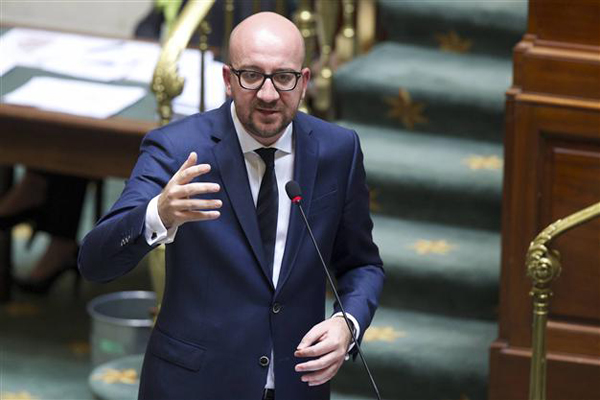18 Oct, Brussels:
Belgian Prime Minister Charles Michel on Sunday defended his budget and vision for the future after tensions within the fractious coalition government nearly sank his programme earlier in the week.
Michel had been due to deliver his annual state of the union address on Tuesday but spending cuts, notably in health, plus a controversial capital gains tax exposed sharp differences which the premier only papered over after “intense” crisis talks.

He told parliament, summoned especially for a very unusual Sunday session, that he was determined to press ahead with economic and social reforms to promote jobs and growth.”It is always the weakest who pay first when the economy falters,” he said, arguing that Belgium was leading the way in changing how people work and employers manage their business.
Labour market reforms include greater flexibility in working hours sought by management but they are opposed by many as leaving workers more vulnerable.Michel insisted that change was imperative to modernise the economy and make it more competitive.
In the budget accord reached after lengthy talks late Friday, the government agreed overall savings of three billion euros ($3.4 billion) but left the capital gains tax to be considered further.
Michel’s address will be debated and put to a confidence vote on Tuesday — when he also faces a potentially embarrassing problem over Belgium’s role in endorsing a landmark free trade deal between the European Union and Canada.
On Friday, lawmakers in the small region of Wallonia voted to block what is known as the CETA agreement, due to be approved on Tuesday by all EU trade ministers and then signed by leaders the following week.
Paul Magnette, socialist head of the Wallonia regional administration, said the vote was not meant to sink the accord but it was a demand to reopen negotiations so as to ensure local interests were not harmed.
The Belga news agency reported later Sunday that Wallonia officials had met with the European Commission and members of Belgian Foreign Minister Didier Reynders’s office to discuss the issue.
A Wallonia spokesman was cited as saying that the “technical” meeting allowed the region to once again make its case over CETA but there were no negotiations. AFP





